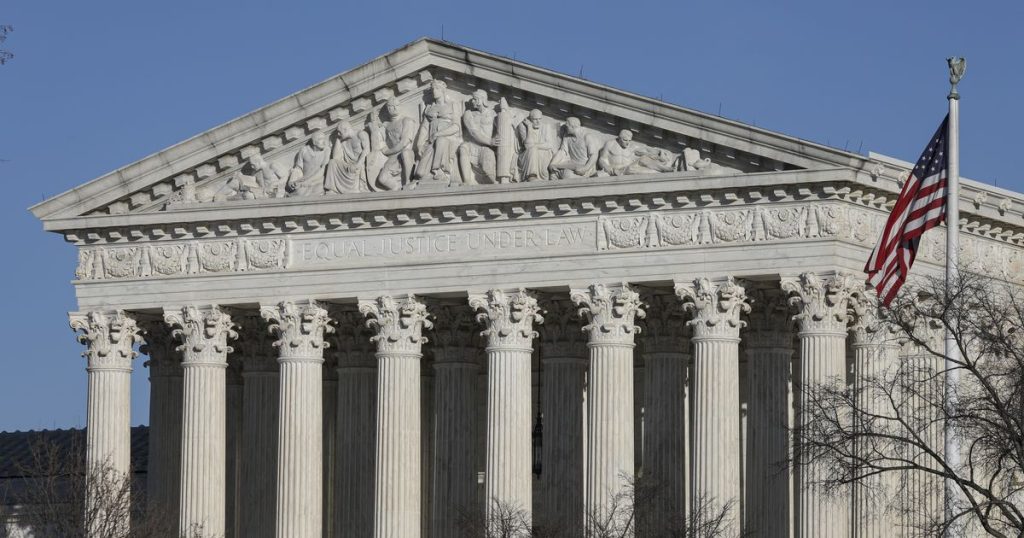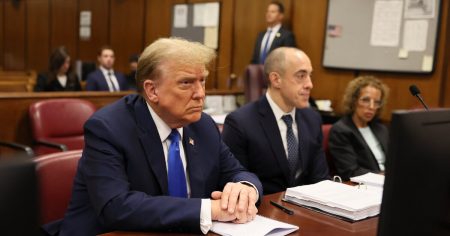The Supreme Court on Monday allowed Idaho to begin enforcing a state law barring transgender youth from receiving gender-affirming care, at least for now. The case, Poe v. Labrador, concerns whether Idaho’s ban on gender-affirming care is constitutional. Last May, Idaho’s Republican-controlled legislature passed the Vulnerable Child Protection Act, which prohibits transgender children from receiving a range of gender-affirming treatments. Two transgender teenagers sued the state, arguing that the law violated their constitutional rights. A district court judge temporarily blocked the ban, and after failed appeals, the state attorney general sought emergency relief from the Supreme Court, which allowed the ban to be enforced for all trans minors in Idaho except for the two plaintiffs.
Individual plaintiffs are concerned about the impact on their ability to access care, as well as the potential risk of having to reveal their identities as transgender. Advocates are looking into available options to ensure that trans Idahoans have access to necessary care. Idaho is the 24th state to adopt a ban on gender-affirming care for minors, and most of these bans are facing legal challenges. In several other states, courts are blocking similar bans, with the central question being whether these bans violate the Constitution. There is ongoing debate among justices regarding the scope of legalization of such laws and emergency relief based on them.
Conservative judges have been considering the use of universal injunctions for laws that have been challenged as discriminatory. They have debated whether such injunctions should be restricted to individual plaintiffs or applied more broadly. Some justices have raised concerns about lower courts using universal injunctions during Donald Trump’s presidency and through the pandemic. Justice Gorsuch, in a concurring opinion, urged for more caution with universal injunctions in the future, while Justice Kavanaugh suggested that the court’s willingness to grant emergency relief hinges on the likelihood of success when the court reaches its final decision. Justice Brown Jackson, in her dissenting opinion, found Idaho’s request to intervene on the scope of the ban’s enforcement troubling, emphasizing the importance of access to gender-affirming care for minors.
In recent years, there has been a coordinated effort to push anti-LGBTQ legislation aimed at curtailing the rights of transgender individuals. Idaho in particular has been a test site for conservative movements, with the passing of the Vulnerable Child Protection Act. While Idaho is enforcing its ban on gender-affirming care, other states have seen mixed results in enforcing similar bans. The Supreme Court has not yet signaled whether it will take up cases challenging these bans in other states. Advocates remain committed to ensuring that trans individuals have access to necessary care, despite the legal challenges they continue to face.
The central question in many of these cases is whether these bans on gender-affirming care for minors violate the Constitution. The Idaho attorney general’s request for emergency relief tried to stop universal injunctions on the ban, maintaining that the bans should only apply to individual plaintiffs. Justices have disagreed on the scope of laws and emergency relief, with debates revolving around the constitutionality of the bans themselves. Although the Supreme Court’s decision on Monday was limited to allowing Idaho to enforce its ban on gender-affirming care, the case is still ongoing and will continue to work its way through the appellate court. The immediate impact of the decision has left families in Idaho scrambling to ensure their children can access necessary care amidst legal challenges to the legislation.














